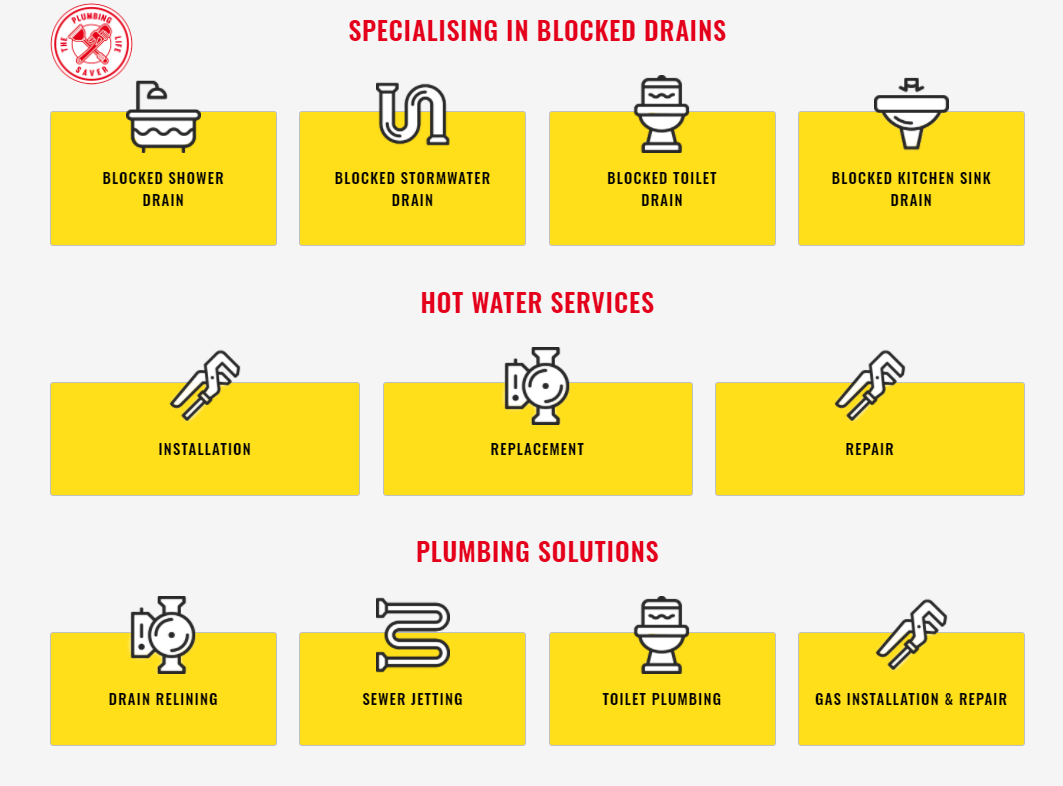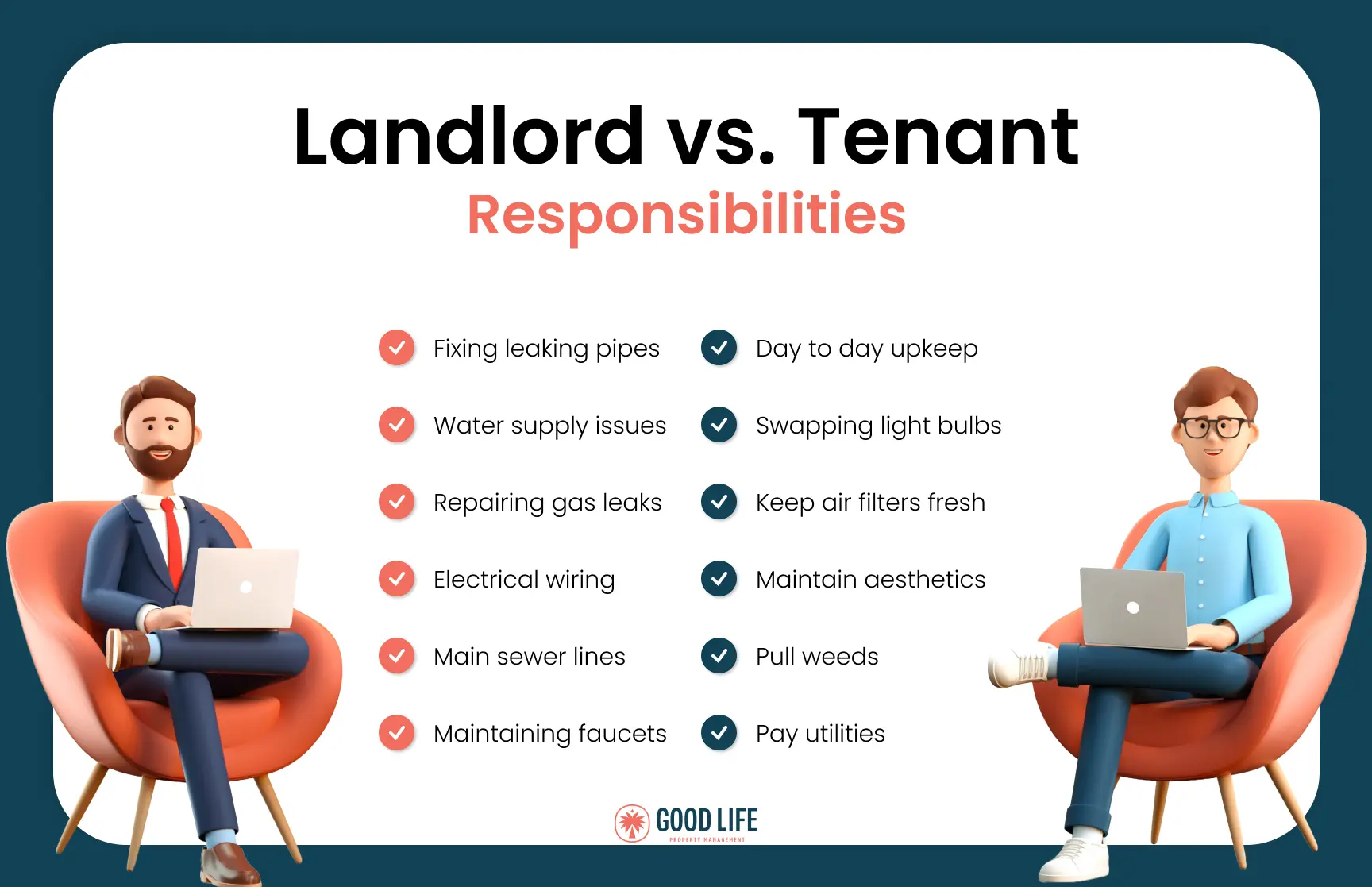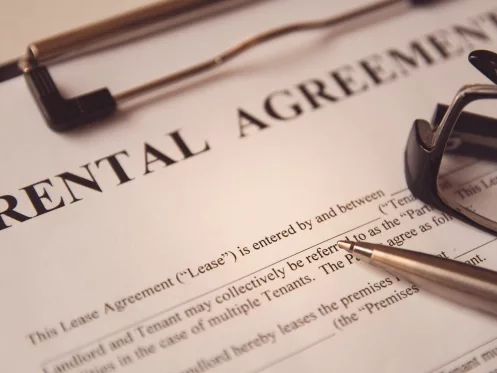Imagine the frustration of waking up to a leaky faucet or discovering a clogged drain in your rental home. You might wonder who’s responsible for fixing these plumbing issues.
Is it your duty as a tenant, or should your landlord be taking care of it? Understanding your rights and responsibilities can save you time, stress, and money. We’ll break down the essentials of plumbing repairs in a rental property.
We’ll guide you through what you should expect from your landlord and what falls under your responsibility. By the end, you’ll have a clear grasp of where you stand, making it easier to handle any plumbing mishaps with confidence. Dive in to find out who should be picking up the wrench in your rental agreement.

Credit: www.newswire.com
Tenant Vs Landlord Responsibilities
Plumbing repairs in a rental often fall on landlords, especially for issues like leaks or broken pipes. Tenants should report problems quickly to prevent further damage. Regular maintenance and minor clogs might be the tenant’s responsibility, depending on the lease agreement.
Understanding these roles helps avoid disputes.
When plumbing issues arise in a rental property, the debate of who is responsible can often lead to confusion and tension between tenants and landlords. Understanding the division of responsibilities is crucial for maintaining a harmonious relationship and ensuring smooth repairs. Whether you’re a tenant or a landlord, knowing your duties can prevent misunderstandings and foster a cooperative environment.Basic Maintenance Duties
As a tenant, you have a role to play in basic maintenance tasks. This includes keeping drains clear and reporting leaks promptly. Regularly checking for signs of wear and tear can prevent larger issues from arising. Landlords, on the other hand, should ensure that plumbing systems are in good working condition before a tenant moves in. Routine checks and scheduled maintenance are part of their responsibilities to prevent major repairs. It’s essential for landlords to address any reported issues quickly to avoid further complications.Common Repair Scenarios
Imagine discovering a dripping faucet in your rental apartment. Is it your job to fix it? Minor fixes like tightening a loose handle may fall under tenant duties. However, if the issue persists, it’s wise to notify your landlord. Consider a burst pipe scenario. This is undoubtedly a landlord’s responsibility due to the potential damage and cost involved. Prompt communication can lead to quicker resolutions, saving both parties time and money. Now, think about a clogged toilet due to improper use. Should the tenant cover the cost? It’s often argued that misuse by tenants requires them to handle repairs. So, how can you prevent these mishaps in the first place? By understanding these common scenarios, tenants and landlords can clarify expectations and responsibilities. Open communication is key to determining who should tackle the repair, ensuring everyone knows their role. In your experience, have you faced a plumbing issue that led to a debate over responsibility? Share your story in the comments to help others navigate similar situations.Legal Obligations
Understanding who is responsible for plumbing repairs in a rental property can save you from unexpected stress and costs. Legal obligations play a crucial role in determining this responsibility. Whether you’re a landlord or a tenant, knowing your rights and duties is essential.
Lease Agreements
Lease agreements are the first place to look for clarity. These contracts outline the responsibilities of both parties. Check if your agreement specifies who handles plumbing issues.
As a tenant, you should always read the lease carefully before signing. A clear clause in the lease can prevent disputes later. If you’re unsure, ask your landlord for clarification.
Landlords, ensure your lease agreements are detailed and precise. This helps avoid misunderstandings. Many landlords include a section that specifies tenant responsibilities for minor repairs.
Local Regulations
Local regulations can also impact who is responsible for plumbing repairs. Different areas have different laws regarding rental properties. These laws might dictate that landlords must handle major plumbing issues.
It’s wise to familiarize yourself with local housing laws. These regulations can protect you from unfair charges. Knowing these laws can empower you to negotiate better lease terms.
Landlords should stay updated on local regulations. This knowledge can help you maintain compliance and avoid legal troubles. Consider consulting a lawyer if you’re unsure about specific laws.
Have you ever faced a plumbing issue in your rental? How did you resolve it? Knowing your legal obligations can make such situations less daunting.
Both tenants and landlords benefit from clear communication and understanding of legal responsibilities. It’s not just about fixing pipes; it’s about maintaining a fair and respectful relationship.
Communication Protocols
Landlords typically handle plumbing repairs in rental properties. Tenants should report issues promptly to ensure swift action. Clear communication helps avoid further damage and costs.
Effective communication is crucial when dealing with plumbing repairs in a rental property. Clear communication protocols help ensure that issues are addressed promptly, minimizing inconvenience for tenants and landlords alike. Establishing a solid communication framework can save time, reduce stress, and prevent misunderstandings.Reporting Issues
Tenants should know exactly how to report plumbing problems. Is there a specific phone number or email? Do you need to fill out a form? Make sure this information is shared when you move in. A quick call or email to the landlord or property manager can prevent minor issues from becoming major headaches. Sometimes, tenants hesitate to report issues, fearing they might be blamed. Yet, delaying reports can lead to bigger problems and higher repair costs. If you’re unsure about a situation, it’s always better to ask.Documenting Repairs
Keep a record of all reported issues and repairs. This documentation can be as simple as maintaining an email thread or a digital log. It provides a timeline of events and actions taken, which is helpful if disputes arise. Landlords should also document all repairs and maintenance activities. This not only ensures transparency but also helps in tracking the performance of appliances over time. A documented history can also assist in determining whether repairs are covered under warranty. When repairs are completed, request a summary of the work done. Knowing what was fixed can help you understand your living space better and may prevent future issues. Have you ever been surprised by an unexpected plumbing problem? Keeping informed can make all the difference.
Credit: www.goodlifemgmt.com
Cost Implications
Understanding who pays for plumbing repairs in rentals is key. It affects both landlords and tenants. The cost implications can vary. They depend on the lease agreement and local laws. Knowing these can help avoid disputes.
Who Bears The Cost
Landlords usually cover major plumbing repairs. These include broken pipes or faulty water heaters. The law often requires landlords to maintain the property. This ensures tenants live in safe conditions. But this is not always the case. Some agreements may state tenants cover certain repairs. This might include minor clogs or leaks.
Shared Expenses
Sometimes, both parties share the costs. This happens when both landlord and tenant contribute to the problem. For instance, if a tenant misuses a fixture and causes damage. In such cases, the tenant may pay part of the repair. Clear communication helps determine fair cost-sharing. Always check the lease for specific clauses. These clarify who pays for what. This can prevent misunderstandings in the future.
Resolving Disputes
Disputes over plumbing repairs in rentals can strain tenant-landlord relations. Clear communication is key. But conflicts can still occur. Resolving these disputes effectively benefits both parties. Understanding available options helps in choosing the right path.
Mediation Options
Mediation offers a neutral ground for discussions. Both parties can express their concerns. A mediator helps find a mutual agreement. It’s less formal than court. Mediation can save time and money. It also preserves relationships. Many local agencies offer mediation services. This approach often leads to satisfactory outcomes.
Legal Recourse
Sometimes, disputes need legal intervention. Knowing your rights is crucial. Tenants should review the lease agreement first. It often outlines repair responsibilities. If unresolved, small claims court is an option. Legal advice may be necessary. Tenants can contact local tenant rights organizations. These organizations provide guidance and support. Legal action should be a last resort. It can be costly and time-consuming.
Preventative Measures
Preventative measures can minimize plumbing issues in rental properties. Both landlords and tenants play a role. Regular checks and tenant education can prevent costly repairs. Understanding responsibilities helps maintain the property’s plumbing system.
Routine Inspections
Landlords should schedule regular plumbing inspections. These inspections can spot early signs of wear or leaks. Early detection can prevent more serious problems. Inspect faucets, pipes, and water heaters. Ensure drains are clear and functional. These checks help maintain the system’s efficiency.
Tenant Education
Tenants should understand basic plumbing care. Educate them on what not to flush or pour down drains. This prevents clogs and damage. Provide guidelines for reporting issues promptly. Prompt reporting can avoid major repairs. Encourage tenants to conserve water. This reduces stress on the plumbing system.

Credit: sierracoolslv.com
Frequently Asked Questions
Who Pays For Plumbing Repairs In A Rental?
Typically, landlords cover plumbing repairs. Tenants should report issues quickly. Check your lease for specifics.
Can Tenants Fix Plumbing Issues Themselves?
No, usually they shouldn’t. Unapproved repairs might cause more damage. Always notify the landlord first.
What Happens If The Tenant Causes Damage?
Tenants are responsible for damages they cause. They might have to pay for repairs. Always be careful.
Are Emergency Plumbing Repairs Handled Differently?
Yes, emergencies need quick action. Contact your landlord immediately. They should prioritize urgent repairs.
How Do Tenants Report Plumbing Problems?
Write or call your landlord. Document the issue. Keep records of communication for future reference.
Conclusion
Understanding who handles plumbing repairs helps tenants and landlords. Clear agreements prevent misunderstandings. Tenants should report issues quickly. Landlords should fix problems promptly. This teamwork keeps homes safe and comfortable. Always check your lease for specific repair details. Communication is key to resolving issues efficiently.
Both parties benefit from clear responsibilities. This ensures smooth living arrangements. Regular maintenance can prevent costly repairs. Stay proactive to avoid emergencies. Repair responsibility depends on the lease terms. Know your rights and duties to avoid disputes. Keep the rental relationship positive and productive.
This makes living easier for everyone involved.





